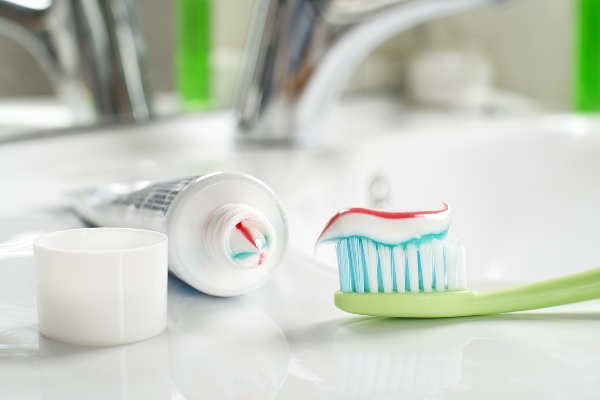 If you are considering how to replace missing teeth, a good option many people prefer is dental implants. Dental implants have become popular because of the fact that they are designed to be permanent and last for decades. Because of how they are constructed, they are many times more durable than other options, such as partials and full dentures or even dental bridges. However, that does not mean that you do not have to perform any upkeep on them. While they should not need maintenance from a dentist unless you are in a serious accident, the implants still need to be cared for so they will last as long as they should.
If you are considering how to replace missing teeth, a good option many people prefer is dental implants. Dental implants have become popular because of the fact that they are designed to be permanent and last for decades. Because of how they are constructed, they are many times more durable than other options, such as partials and full dentures or even dental bridges. However, that does not mean that you do not have to perform any upkeep on them. While they should not need maintenance from a dentist unless you are in a serious accident, the implants still need to be cared for so they will last as long as they should.
Thankfully, implants are not hard to care for if you know what to do. We have prepared this guide to help explain what needs to be done to care for your implants to ensure their longevity.
Do I need special equipment to care for my implants?
The great thing about caring for your implants is that you do not need anything more than you would already use on your natural teeth to care for your dental implants once they are installed. As long as you know how to maintain a good oral hygiene routine and stick to it, you can care for your implants just fine.
This is because implants, despite being prosthetic, function just like natural teeth, so the process for upkeep is no different.
Caring for implants
Caring for your implants starts the minute they are finished benign installed while you are still recovering. During the few days that it typically takes to recover from the surgery, you have to be extra careful to keep the implant clean, which can be done with a toothbrush, and avoid eating hard foods that could irritate the site of the surgery.
Once the site of the surgery has healed completely and there is no pain or soreness, you can begin caring for your implants like normal. The new teeth are designed to slowly bond with your mouth over time and feel more and more like natural teeth. The construction makes them stronger and more durable than natural teeth, but the same rules for hygiene still apply.
You should brush and floss after meals or at least twice a day to keep debris and germs from building up. You may even want to switch to an antibacterial mouthwash to help reduce the chances of bacteria buildup and developing gum disease. Your dentist may want to see you every few weeks for the first year after getting your implants, but so long as you maintain your hygiene routine and do not damage the implants through an accident or injury, you should have nothing to worry about in terms of maintenance from there forward.
Conclusion
Caring for dental implants is not difficult at all. Treat them like natural teeth, and remember to brush, floss, and rinse daily. Follow your dentist’s advice, and you should have a set of teeth you can be proud of for the rest of your life.
Request an appointment or call Island Paradise Dental at 239-642-3233 for an appointment in our Marco Island office.
Related Posts
Dental crowns are an investment into oral health that requires proper care and maintenance to ensure longevity and function. Adopting a consistent oral hygiene routine can keep the crown in pristine condition. The following blog will discuss techniques to help you maintain and care for your new dental crowns.Maintaining good oral hygiene habits is crucial…
Visiting the dentist can be an anxiety-inducing event for many people. The biggest reason for this is that general dentistry appointments are often associated with painful procedures and a perceived loss of control as you lay back and let the dentist and dental assistant perform their duties. It might also be possible that you are…
Dental fillings are ideal for treating mild to moderate cavities. They are appropriate for patients of all ages, from young children to elderly adults. In this review, we closely examine the role of dental fillings in treating dental cavities, highlighting the different types of filings, when they are recommended, and how they compare to alternative…














